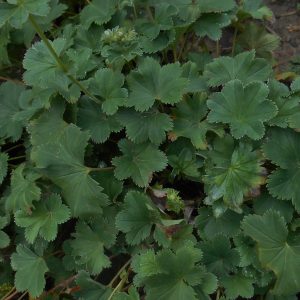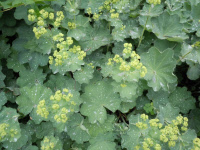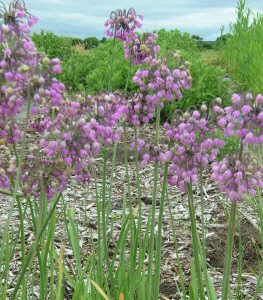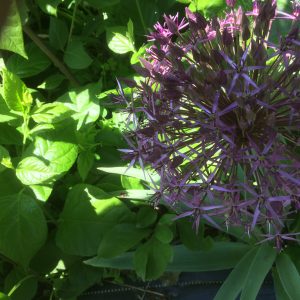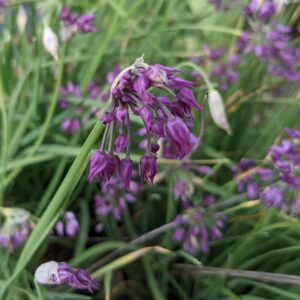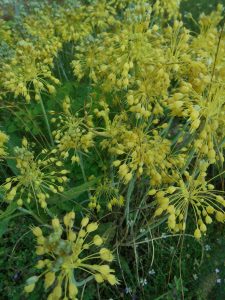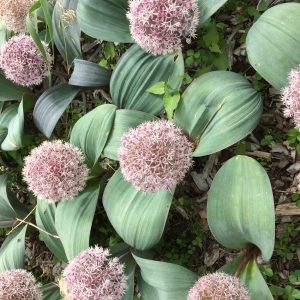Shop
Showing 33–40 of 778 results
-
Alchemilla alpina Alpine lady’s mantle Z 3-9
From a low mound of palmate (shaped like an open hand) silvery-margined leaves with silver undersides emerge short frothy sprays of chartreuse-yellow flowers in early summer. Will rebloom if cut back flowers after bloom.
From a low mound of palmate (shaped like an open hand) silvery-margined leaves with silver undersides emerge short frothy sprays of chartreuse-yellow flowers in early summer. Will rebloom if cut back flowers after bloom.
Size: 6-8” x 8-12”
Care: sun to part shade in moist to moist well-drained soil
Native: Europe and southern Greenland
Wildlife Value: Deer and rabbit resistantThe species originally described by English botanist and gardener to Queen Mary, Leonard Plukenet (1641-1706).
-
Alchemilla erythropoda Dwarf lady’s mantle Z 3-7
A miniature Lady’s Mantle for edging borders or growing in the rock garden. Short sprays of chartreuse flowers appear over a dense mound of scalloped light-green leaves that catch and hold rain or dewdrops
OUT OF STOCK
A miniature Lady’s Mantle for edging borders or growing in the rock garden. Short sprays of chartreuse flowers appear over a dense mound of scalloped light-green leaves that catch and hold rain or dewdrops
Size: 6-10” x 9-12”
Care: Sun to shade in moist well-drained soil
Native: Eastern Europe
Awards: Royal Horticultural Society Award of MeritDescribed in Flora Kavkaza Flora Kavkaza in 1928.
-
Alchemilla mollis Lady’s mantle Z 3-8
June to July, clusters of starry chartreuse flowers bloom above sage green, scalloped, tooth-edged foliage that holds dew drops like beads of mercury.
June to July, clusters of starry chartreuse flowers bloom above sage green, scalloped, tooth-edged foliage that holds dew drops like beads of mercury.
Size: 12" x 12"
Care: Sun to part shade in moist soil
Native: East Carpathians, Caucasus
Awards: Royal Horticultural Society Award of Merit.Alchemilla derived from Arabic for alchemist, medieval chemists who attempted to transmute ordinary substances into gold. They used the dew drops which beaded on leaves to add to gold making recipes. “Lady’s mantle” comes from a legend that the plant was used to adorn the Virgin Mary. Gerard, a 16th century English herbalist, identified medicinal uses: cure inflammation from wounds, clot blood, help bruises and flu, aid conception and discourage miscarriages. Reputedly the plant also returned women to the former beauty of youth.
-
Allium cernuum Nodding onion, Prairie onion Z 4-8
Umbels of arching stems with nodding bells of lilac shading to pink
Umbels of arching stems with nodding bells of lilac shading to pink or occasionally white. May to June.
Size: 12”-18”x 3-6”
Care: sun to part shade in moist well-drained soil
Native: Canada to Mexico, Wisconsin native
Wildlife Value: nectar source for Hairstreak butterfly, Attracts hummingbirds.Cernuum is Latin meaning “nodding.” Many groups of 1st Americans ate the bulbs raw, roasted or dried for winter storage or as flavoring for soups and gravies. Cherokee used this plant medicinally to cure colds, hives, colic, “gravel & dropsy,” liver ailments, sore throats, “phthisic,” and feet in “nervous fever.” Those in the Isleta Pueblo were not quite as creative as the Cherokee and used this only for sore throats and infections. Meriwether Lewis collected this in Montana and wrote, “I met with great quantities of a small onion about the size of a musquit ball … They were crisp, white and well-flavoured. I gathered about a half a bushel of them before the crew arrivd.” Chicago is believed to be named for the Algonquin word for this plant chigagou.
-
Allium christophii syn. Allium albopilosum Star of Persia, Persian onion Z 4-8
Awesome purple globe-shaped flowers nearly a foot across in late spring to early summer. Ephemeral. Flowerhead make stunning years long dried arrangements
ARCHIVED
Note: This is a plant not currently for sale. This is an archive page preserved for informational use.
Awesome purple globe-shaped flowers nearly a foot across in late spring to early summer. Ephemeral. Flowerhead make stunning years long dried arrangements
Size: 1-2’ x 1’
Care: sun in well-drained to moist well-drained soil
Native: Iran and Turkey
Wildlife Value: Deer resistant. Walnut tolerant
Awards: Royal Horticultural Society award of Garden MeritNamed Star of Persia for the 100 star shaped flowers that make up each flower head.
Described by German botanist and plant explorer Ernst Rudolf von Trautvetter (1809-1889) in 1884. He worked at botanic gardens and universities in Kiev and St. Petersburg for 40 years. -
Allium cyathophorum var. farreri Z 5-8
Clusters of nodding deep purple tubes flowering in late spring to early summer
Clusters of nodding deep purple tubes flowering in late spring to early summer
Size: 6-12” x 9-12"
Care: sun to part shade in moist to moist well-drained soil
Native: mountains of China.1st described in 1930.
-
Allium flavum var. minus Yellow flowered garlic
Umbels of shatter-shot yellow florets, like fireworks, bloom atop blue-green stems in July.
Umbels of shatter-shot yellow florets, like fireworks, bloom atop blue-green stems in July.
Size: 10” x 3”
Care: sun in moist well-drained soil
Native: Northern Turkey
Wildlife Value: resistant to rabbits & deer. Attracts bees and butterflies
Awards: species received Royal Horticultural Society Award of Garden MeritDescribed by Swiss botanist Pierre Edmond Boissier before 1885
-
Allium karataviense Turkestan onion, Kara Tau garlic Z 5-9
Basal rosette of wide, glaucous, arching leaves from which a soft-ball sized soft pink to white flower emerges in early summer, ephemeral
ARCHIVED
Note: This is a plant not currently for sale. This is an archive page preserved for informational use.
Basal rosette of wide, glaucous, arching leaves from which a soft-ball sized soft pink to white flower emerges in early summer, ephemeral
Size: 9” x 6”
Care: sun in well-drained soil
Native: central Asia – the Stans (Kyrgyzstan, Tajikistan, Uzbekistan, Afghanistan).
Wildlife Value: value: resistant to rabbits & deer. Attracts bees and butterflies
Awards: Elisabeth Carey Miller Botanic Garden Great Plant Pick, Royal Botanic Garden Award of Garden Merit1st described in 1875 by German botanist Eduard August von Regel (1815-1892) who served as the Director of the Imperial Botanical Garden of St. Petersburg Russia


